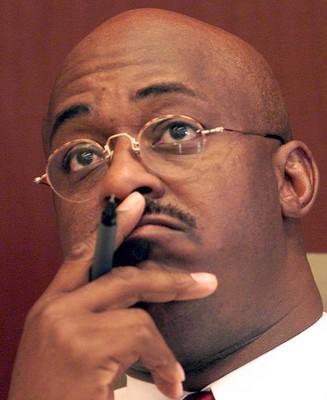Prison reforms OK’d

CARSON CITY — A Senate committee on Thursday approved reforms to prison sentences that lawmakers hope will help reduce prison crowding.
The Senate Judiciary Committee approved Assembly Bill 510, which would increase the “good time” credits prison inmates can earn to reduce their sentences. Backers say that alone will allow about 1,200 nonviolent criminals to become eligible for release by the Parole Board over the next two years.
The committee also amended the bill to incorporate several provisions from another bill that is not expected to go forward, Assembly Bill 416.
That proposal would give judges more leeway in adding enhancement penalties to sentences — additional prison time for an aggravating factor in the crime, such as use of a deadly weapon or committing a hate crime.
Currently, most enhancements automatically double the sentence. The committee voted to allow judges to decide on an enhancement of anywhere from 1 to 10 years, but extended it to 1 to 20 years for use of a handgun.
In either case, the length of the enhancement could not exceed the sentence for the underlying crime.
The proposal approved by the committee requires judges determining sentence enhancements to consider the circumstances of the crime, the offender’s criminal history, the impact on the victim and mitigating factors in determining the length of the sentence. Judges are also to state on the record the reasoning behind the decision, an attempt to create more transparency.
Sen. Maurice Washington, R-Sparks, noted that the proposed changes in sentences represent a partial rollback of the “truth in sentencing” laws he helped enact in the 1990s, when victims’ advocates demanded that sentences be ironclad.
“I am a little reluctant to see it unraveled,” Washington said. But the provisions of the bill, he said, present “a well thought-out compromise that may give some resolution to those that are incarcerated … and the crime doesn’t fit the punishment.”
The U.S. Supreme Court has found some mandatory sentencing laws unconstitutional because they do not give judges discretion.
Assemblyman David Parks, D-Las Vegas, who chairs the Assembly’s Select Committee on Corrections, Parole and Probation, said the amended bill, which next goes to the full Senate, will both decrease the number of inmates currently in prison and reduce the potential for crowding in the future. “We’re trying to limit the needed growth in prisons,” he said.
The committee did not adopt a provision in AB416 that would have made parole hearings subject to the open meeting law, choosing to leave the matter up to the Nevada Supreme Court, which is expected to rule on whether parole hearings are open meetings in the coming months.
The bill approved by the committee creates an Advisory Commission on the Administration of Justice, made up of lawmakers and representatives of law enforcement, courts, prosecution and defense attorneys, corrections, and victim and inmate advocates.
The commission is to take a look at further sentencing reforms and make recommendations to the next Legislature.